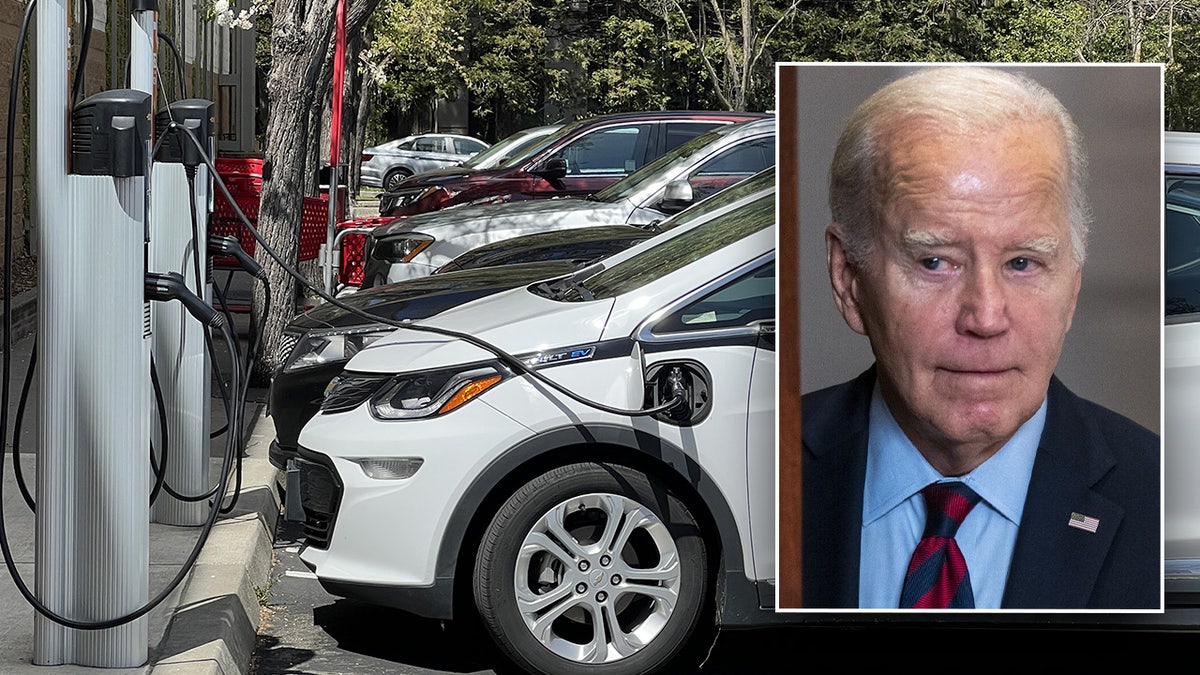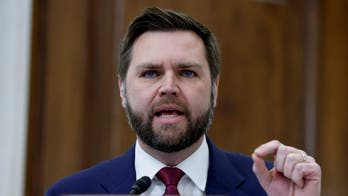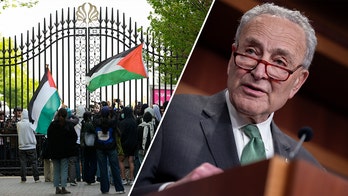Kennedy Stops By To Discuss Electric Vehicles And Biden’s Ritzy NYC Fundraiser
Host of the "Kennedy Saves The World" podcast Kennedy joins Fox Across America to explain how elected officials have less power than bureaucrats.
A decreasing number of Americans report that they are either seriously considering or might consider buying an electric vehicle, even as President Biden continues to push for greater EV ownership.
While 55% of Americans said last year that they were considering an EV purchase, that figure has declined to 44%, according to a Gallup poll conducted in March and published Monday. The data further showed that just 9% of respondents report that they are seriously considering buying an EV.
"Gallup data confirm that the U.S. market for electric vehicle ownership remains fairly limited, with about one in six Americans currently owning one or seriously considering purchasing one," Gallup analyst Jeffrey Jones wrote. "The size of that market is unchanged since last year, although it has shifted toward more owning and fewer seriously considering buying an EV."
According to the Gallup poll, Americans are deeply divided on whether to purchase an EV when factoring in income, age and political ideology.
MAINE REJECTS SWEEPING ELECTRIC VEHICLE MANDATE IN BLOW TO GOVERNOR'S CLIMATE AGENDA
Among those who earn a salary of more than $100,000 per year, 59% reported owning or considering purchasing an EV. That number fell to 56% and 39% among middle-income and lower-income Americans, respectively.
An even larger disparity is present when comparing those younger Americans with older Americans, and Democrats with Republicans.
Sixty-two percent of those 18 to 29 own or would consider purchasing an EV, while 63% of those aged 65 and up said they would not buy an EV. And while 73% of Democrats said they own or would consider buying an EV, 69% of Republicans would not buy an EV, according to the Gallup poll.
17 RETIRED MILITARY OFFICIALS RAISE ALARM ON BIDEN'S ELECTRIC VEHICLE PUSH
The survey data comes shortly after the Biden administration finalized the most aggressive tailpipe emissions regulations ever crafted, as part of its climate-related effort to incentivize a large-scale increase in EV manufacturing and ownership. Biden said the rules would help achieve his goal of ensuring 50% of all U.S. car sales are electric by 2030.

President Biden has set a goal of ensuring 50% of car purchases are electric by 2030. (Getty Images)
The regulations were blasted by oil producers and petroleum refiners who argued they would "unequivocally eliminate most new gas cars" from the market in less than a decade.
"This regulation will make new gas-powered vehicles unavailable or prohibitively expensive for most Americans," said American Fuel & Petrochemical Manufacturers President and CEO Chet Thompson and American Petroleum Institute President and CEO Mike Sommers in a joint statement. "For them, this wildly unpopular policy is going to feel and function like a ban."
CLICK HERE TO GET THE FOX NEWS APP
In 2023, 9.5% of new, light-duty vehicle sales were EVs, up from 7% in 2022 and 4.3% in 2021, according to data from the Alliance for Automotive Innovation, an industry group that represents major automakers. At the same time, EVs remain more expensive than traditional, gas-powered cars.
But Daniel Villaseñor, a spokesperson for California Gov. Gavin Newsom, said "actions matter more than polls," noting the high number of zero-emissions car sales in California, where the state government has finalized an aggressive EV mandate.
"More zero-emission vehicles were sold in California last year than at any point in history, including in Q3 when sales hit their highest share ever," Villaseñor said in a statement to Fox News Digital. "Sales soared by 46% year-over-year, continuing the upward trend led by our state every year. Consumer trends show California is going to achieve our world-leading goal of 100% [zero-emissions vehicle] sales by 2035."
The White House didn't respond to a request for comment for purposes of this story.






